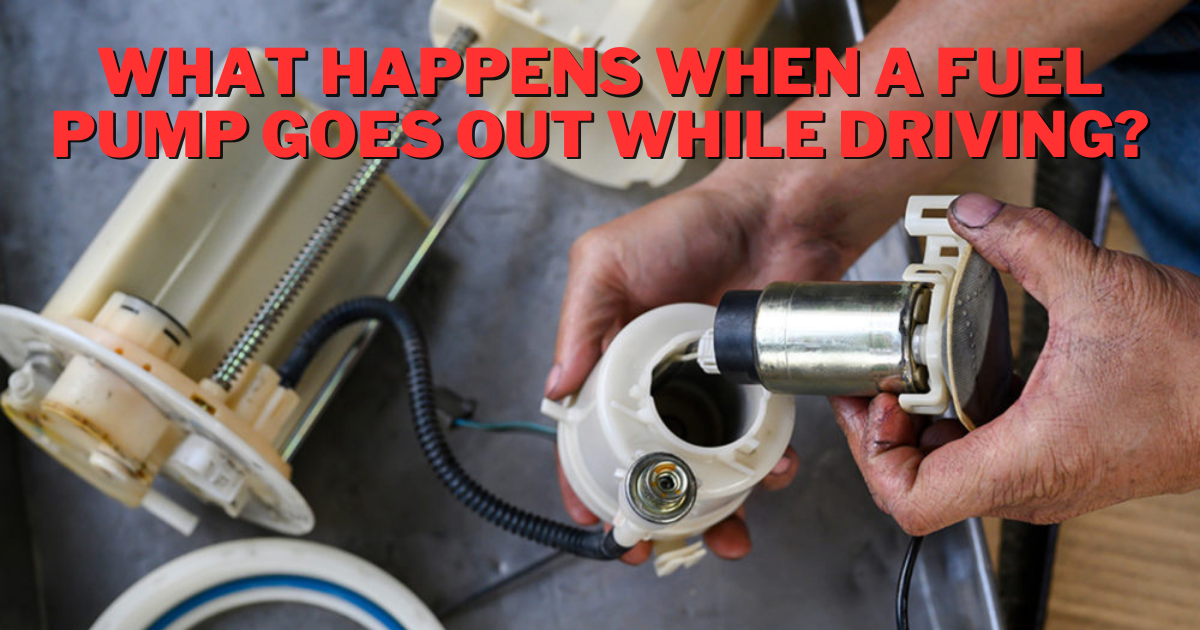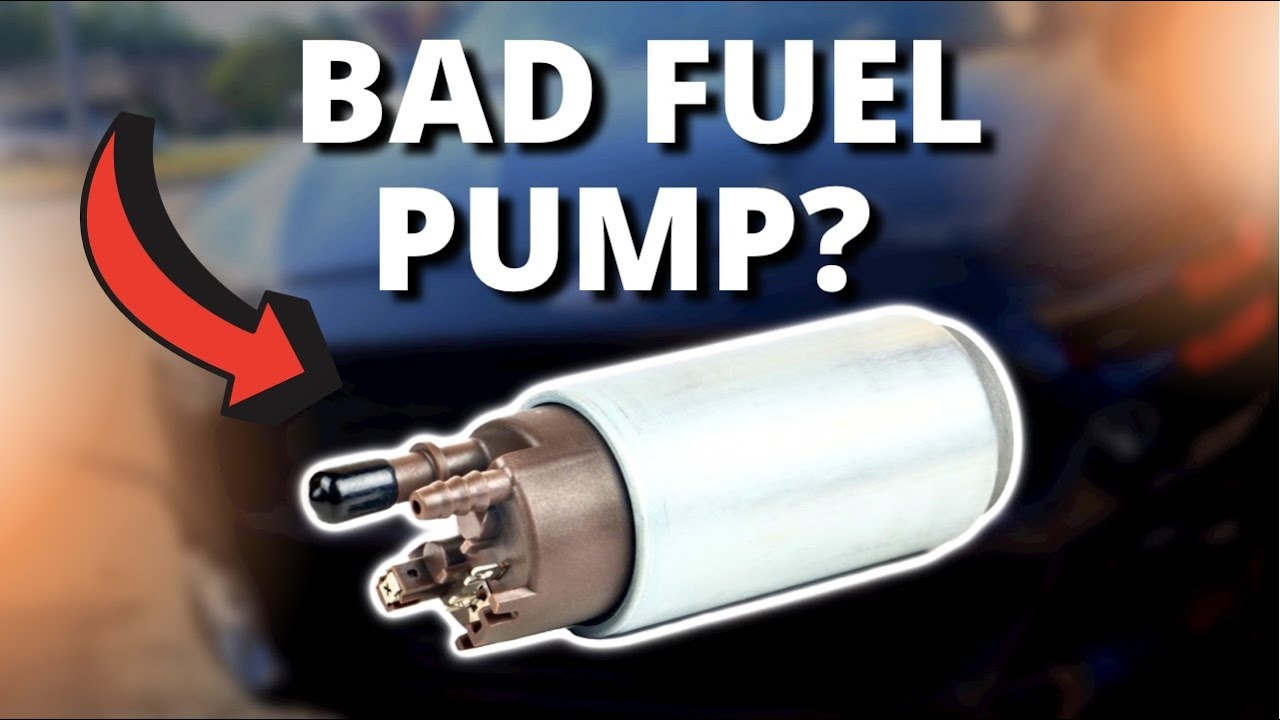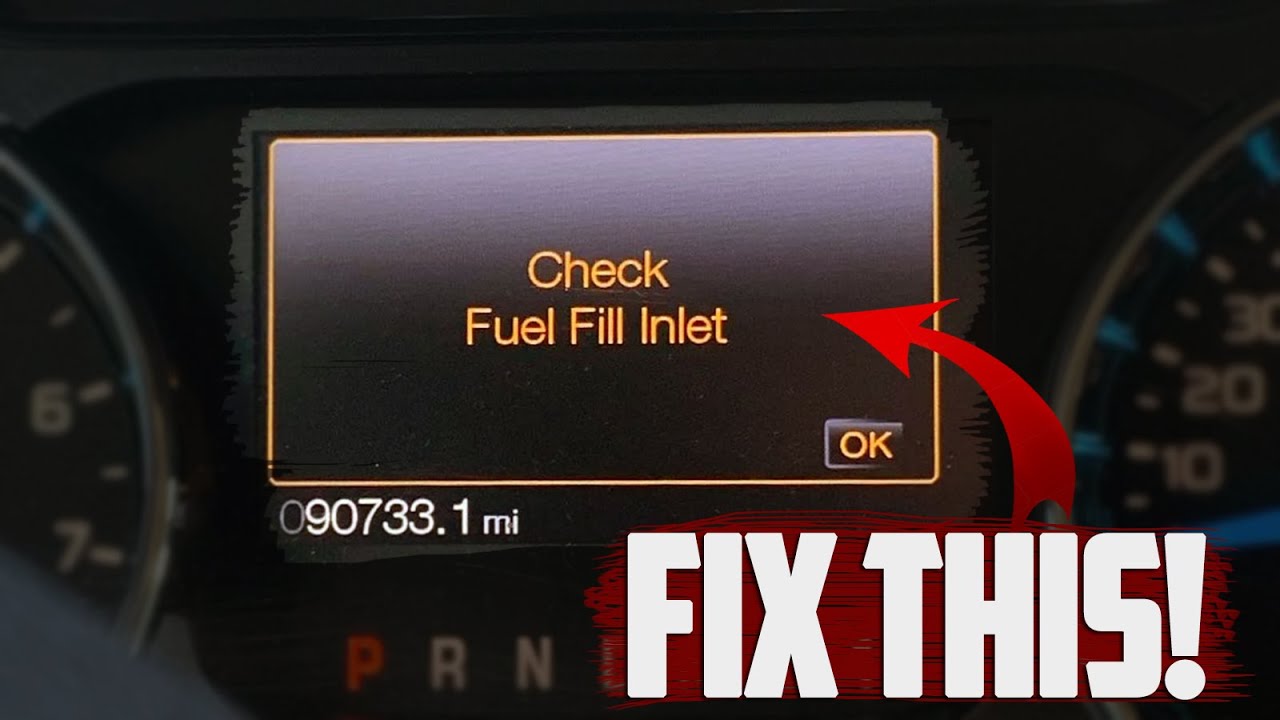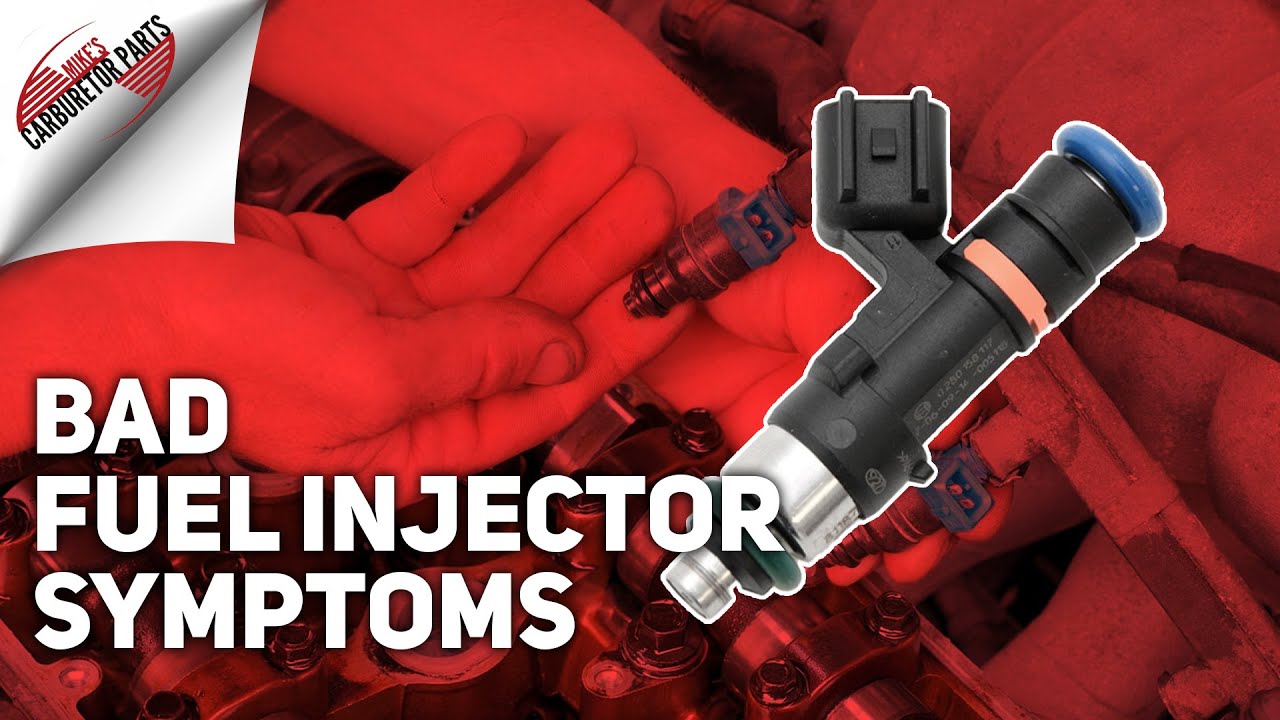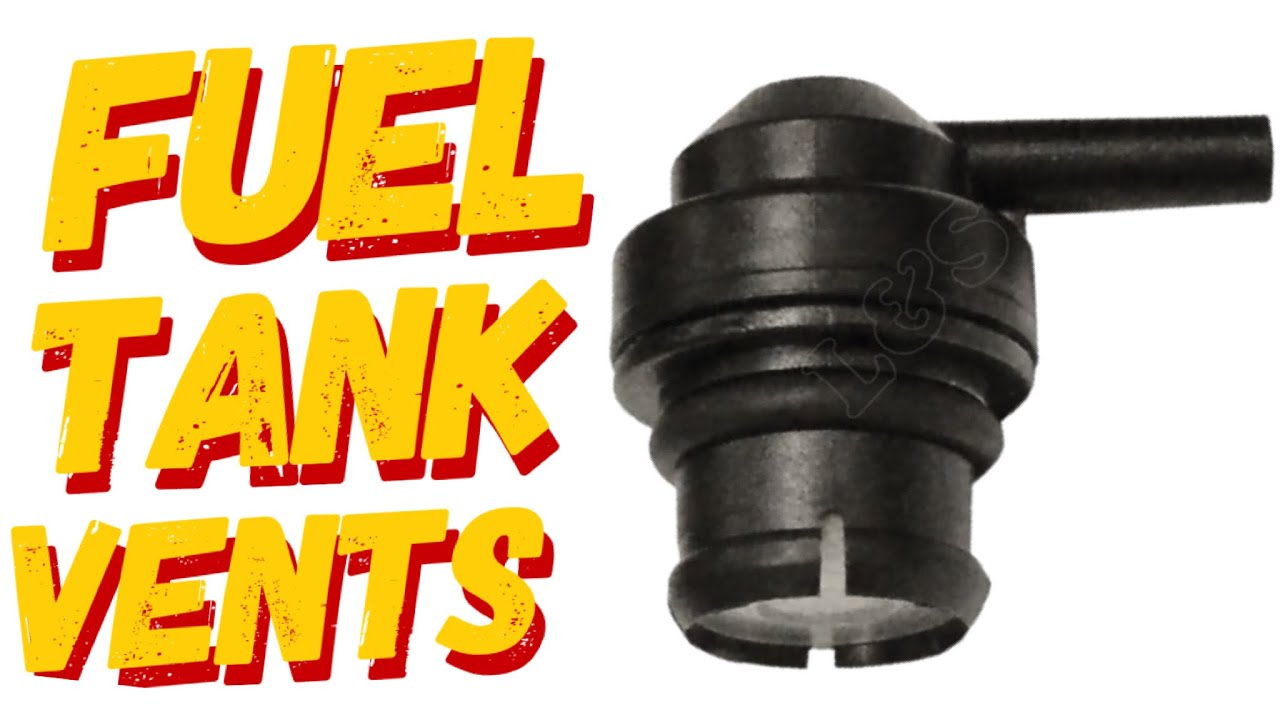Feel your car’s pulse faltering? It might be a cry for help from your fuel pump. Let’s navigate the murky waters of fuel pump failures, where symptoms whisper tales of needed repairs. Dive into these seven key signs that your car’s fuel pump is on the brink, and steer clear of roadside breakdowns.
The best-case scenario for a faulty fuel pump is diminished fuel efficiency. If the fuel pump in your car stops working, your car will either not move or may break down completely.
Your car might not turn on if the problems with your gasoline pump are severe enough. We’ll go through some of the symptoms of a failing fuel pump and the consequences of that failure.
What Happens When a Fuel Pump Goes Out?
Your vehicle’s performance and handling may suffer greatly if its fuel pump is malfunctioning or has completely failed. If the fuel-to-air ratio is incorrect, the engine will have trouble propelling the car since the pistons won’t fire. It’s not just about inefficiency or worse gas mileage. Vehicle’s inability to start due to a faulty fuel pump.
How long does a fuel pump typically last?
Fuel pumps are built to be durable and last for the majority of the lifetime of your vehicle. Fuel pumps have a minimum lifespan of 100,000 miles before they need to be replaced, and some have been known to survive over 200,000 miles!
What Are the Signs of the Fuel Pump Going Out?
The fuel pump is a critical component of your internal combustion engine. It’s concerning when the fuel pumps fail to start, and you’ll want to get the problem fixed as soon as possible to avoid more harm. But what are the warning signals that the fuel pump is failing?
The following are symptoms of a failing fuel pump:
Engine Stuttering
If your engine sputters as you reach your top speed on the highway, it may be a signal from your fuel pump. Your engine sputters because it isn’t getting enough fuel, which could be due to a clogged or faulty fuel pump. Sputtering is also an indication of faulty spark plugs.
Engine Overheating

Overheating can be caused by a failing fuel pump, which could lead to engine failure. If the fuel pump overheats, the engine will stall instead of the radiator, which will explode the cap and spray boiling coolant everywhere. At the first hint of overheating, stop your car.
Poor Fuel Pressure
If your fuel pump is failing, the only way to tell why is to conduct a fuel pressure test. A fuel pressure gauge is readily available at any car parts retailer. Having a friend rev the engine for you is a great way to assess the fuel pressure in your tank. Refer to the owner’s handbook for the optimal fuel pressure.
No Power
If your fuel pump is failing, your engine may not splutter, but you may notice a loss of power in certain conditions. Think about it: you’re driving up a steep hill when the engine suddenly dies. This indicates that the fuel pump is unable to cope with the increased demands of the slope and is not delivering a sufficient amount of fuel to the engine.
Fired Up Motor
Contrary to insufficient fuel, excessive fuel can be delivered to an engine by a fuel pump that is failing. When this occurs, your car will experience jerky acceleration and braking. When a vehicle experiences a surge, its speed suddenly increases and then decreases.
Reduced Fuel Efficiency
You will notice a drop in gas mileage if the fuel pump is supplying an excessive amount of fuel to the engine or if the relief valve fails to close to limit fuel flow. Keep an eye on your mileage to monitor gas savings. A failing fuel pump could be blamed for the decrease in MPG.
Inoperative Engine
If you don’t pay attention to any of the warnings above, you still might wind up with a dead engine. If the fuel pump fails or becomes blocked, the engine will not get fuel. Nothing you do will allow your car, truck, or SUV to turn on and start. Fuel line obstructions are another possible cause.
What to do if a Fuel Pump goes out while driving?

To be sure that your fuel pump has failed while driving, you should look for warning signs. But we have some suggestions that should help.
1. Replacement of the Faulty Fuel Pump
To prevent the engine from overheating, stop the vehicle and have a qualified mechanic inspect and change the fuel pump.
2. Fix the Faulty Fuel Pump without replacement
To repair a fuel pump without replacing it, you must examine its condition with a pressure gauge. The next step is to clean up any dirt accumulations and check for impurities in the gas tank.
If your car has an electronic fuel pump, you can remove any obstructions or sediment buildup by using a fuel system cleaner. Most current vehicles don’t allow you to access the pump’s internal filter, but with an earlier model vehicle, you can remove junk from the pump.
Improper engine fuel pump repair or replacement might cause safety issues or costly damage. This repair is, therefore, best left to trained experts.
How Much Does It Cost To Replace a Fuel Pump?
A new fuel pump might set you back anything from $100 to $1,000 or more. DIY fuel pump replacement can be done for as low as $100. On the other hand, pumps can be quite pricey. Also, the expense of having a garage replace a fuel pump is higher due to the labor needed.
Depending on the make and model of your vehicle, the price of a new fuel pump might range widely. Some newer or high-performance vehicles’ fuel pumps may be more expensive to replace than older, cheaper vehicles’ fuel pumps.
The labor fees for having a professional change your car’s fuel pump will add another $200 to the total. The sum may change, though, depending on your location.
FAQs
Can a fuel pump fail suddenly while driving?
When a fuel pump fails, it usually does so abruptly and without warning, and there are usually very few signs to alert the driver. Moreover, the likelihood of a fuel pump failure increases as vehicle mileage rises.
How do you avoid fuel pump failure?
Your Mechanic reports you may minimize the likelihood of fuel pump failure by keeping your gas levels above 1/8th to 1/4th of a tank and changing your fuel filter every 30,000 miles.
How long does a fuel pump last?
Current fuel pumps are built to endure for about 100,000 miles. In the vast majority of cases, a fuel pump won’t need to be replaced throughout the time you own your vehicle. Repairing the fuel pump is not usually an option while leasing a vehicle.
What Happens When a Fuel Pump Goes Out?
If your fuel pump is malfunctioning or has completely failed, driving your car will be extremely difficult. If the fuel-to-air ratio is incorrect, the cylinders won’t receive enough fuel to fire their pistons, and the engine will have a hard time propelling the car forward. Low efficiency and gas mileage are only part of the problem. Your automobile won’t start if the fuel pump is broken.
Final Words
If the fuel pump fails, the engine may not get the right amount of gas or may not get any gas at all. This causes the car to either not start or die while you’re driving. It’s risky to drive around with a broken fuel pump since it could cause engine damage. A faulty fuel pump might be difficult to fix. So, it is recommended that the broken part be replaced.

